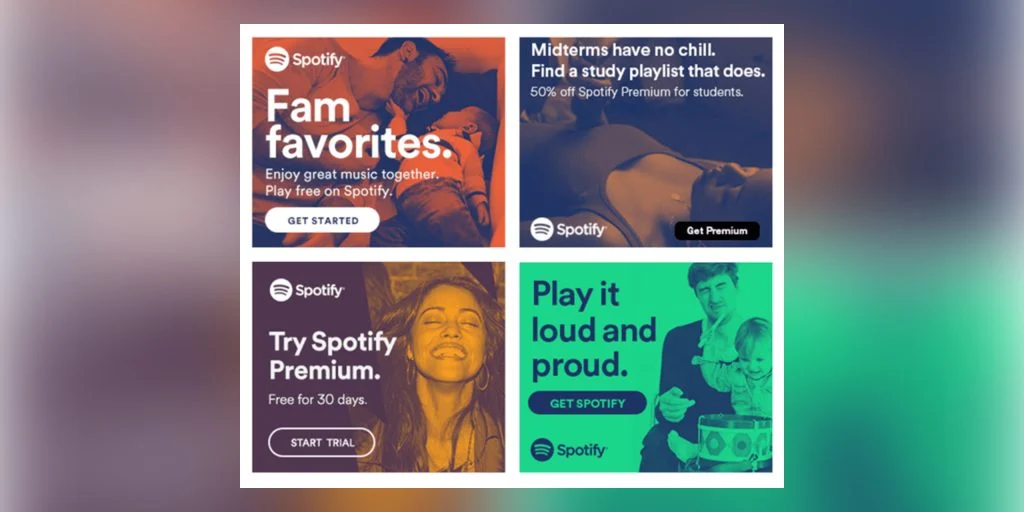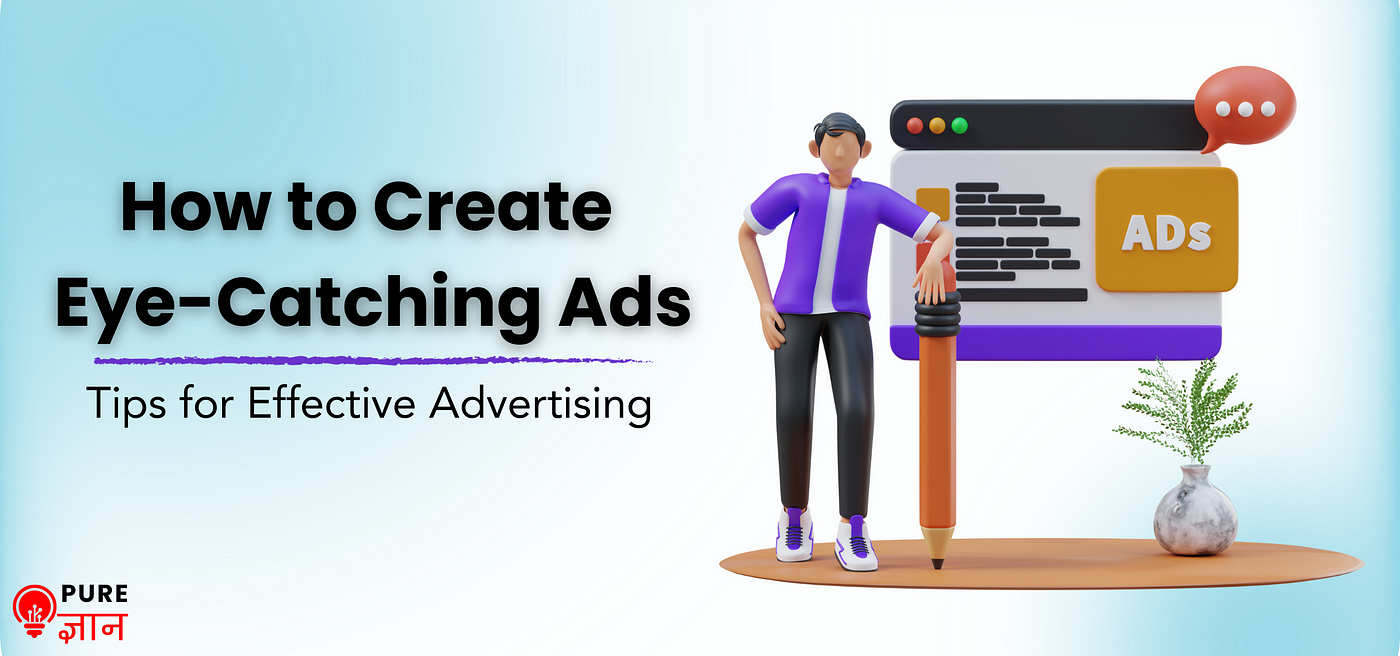
Banner ads remain a powerful tool in digital marketing, offering the potential to grab attention and drive traffic when designed effectively. Creating eye-catching banner ads involves more than just flashy colors or bold text; it requires a strategic approach that balances visual appeal with clear messaging. Here are the best practices for creating banner ads that truly stand out.

Eye-Catching Banner Ads
1. Define Clear Objectives
Know Your Purpose
Before diving into design, clarify the purpose of your banner ad. Are you aiming to increase brand awareness, drive traffic to a landing page, or promote a specific product? Understanding your objective helps shape the ad’s design and messaging.
Select an Appropriate Call to Action (CTA)
Your CTA should be directly related to your ad’s objective. Whether it’s “Shop Now,” “Learn More,” or “Sign Up,” ensure the CTA is clear, compelling, and actionable.
2. Focus on Visual Hierarchy
Prioritize Key Elements
Organize your ad elements in a way that guides the viewer’s eye naturally through the content. Typically, the brand logo, headline, and CTA should stand out the most. Use size, color, and positioning to establish a clear visual hierarchy.
Keep It Simple
Avoid cluttering your ad with too much text or too many images. Simplicity is key to ensuring that your message is easily understood at a glance. Focus on one key message or value proposition.
3. Use Attention-Grabbing Colors
Choose Contrasting Colors
Colors can make or break a banner ad. Use contrasting colors to make your ad stand out, especially between the background and the CTA button. However, ensure that your color choices align with your brand’s identity and evoke the right emotions.
Stick to a Limited Color Palette
Using too many colors can be overwhelming. Stick to a limited color palette, ideally your brand colors, to create a cohesive and professional look.
4. Incorporate High-Quality Images
Select Relevant Images
Images should complement your message and be relevant to your product or service. High-quality, professional images that resonate with your target audience can significantly increase engagement.
Optimize Image Size
Ensure that your images are optimized for web use to avoid slow loading times. Fast-loading ads are crucial for maintaining user interest and ensuring a smooth user experience.
5. Craft Compelling Copy
Be Concise
Space is limited in banner ads, so your copy should be brief and to the point. Focus on a strong headline that conveys your message in just a few words.
Use Action-Oriented Language
Your copy should encourage users to take action. Use verbs and phrases that create a sense of urgency or highlight the benefits, such as “Get Started,” “Exclusive Offer,” or “Don’t Miss Out.”
6. Optimize for Different Devices
Design for Responsiveness
Your banner ad should look great on any device, whether it’s a desktop, tablet, or smartphone. Ensure your design is responsive, meaning it adjusts and scales properly to different screen sizes.
Test Across Devices
Before launching your ad, test it across various devices and browsers to ensure consistency in appearance and functionality. This ensures that your ad reaches its full potential audience without technical glitches.
7. Include a Strong Call to Action
Make the CTA Stand Out
Your CTA button should be the most noticeable element on your banner ad. Use bold, contrasting colors and clear, actionable language to prompt users to click.
Position the CTA Prominently
Place the CTA where it’s easily visible, typically in the lower right corner or center of the ad. This strategic positioning increases the likelihood of user interaction.
8. Leverage Animation Sparingly
Use Subtle Animations
Animations can make your ad more dynamic and engaging, but they should be used sparingly. Subtle movements, such as a CTA button pulsing or a slight image transition, can draw attention without overwhelming the viewer.
Ensure Quick Loading Times
Animated ads should load quickly to keep users engaged. Optimize your animations for fast loading times to prevent users from losing interest before the ad fully displays.
9. Adhere to Ad Platform Guidelines
Follow Size and Format Specifications
Different platforms have specific requirements for banner ads, including size, file format, and animation length. Ensure your ad meets these specifications to avoid issues with display and performance.
Comply with Content Guidelines
Ensure your ad content adheres to the platform’s guidelines, avoiding prohibited content and adhering to best practices for user experience. This helps prevent your ad from being rejected or underperforming.
10. Test and Iterate
A/B Testing
Conduct A/B testing to compare different versions of your banner ad. Test variations in headlines, images, CTAs, and colors to determine which elements perform best.
Analyze Performance Metrics
Track the performance of your banner ads by monitoring key metrics such as click-through rates (CTR), conversion rates, and engagement levels. Use this data to refine and improve future ads.
Conclusion
Designing eye-catching banner ads that convert involves a careful balance of visual appeal, clear messaging, and strategic placement. By defining clear objectives, focusing on visual hierarchy, using attention-grabbing colors, and optimizing for different devices, you can create banner ads that not only stand out but also drive the desired action. Regular testing and iteration based on performance metrics will further enhance the effectiveness of your banner ads, ensuring they deliver maximum impact.
